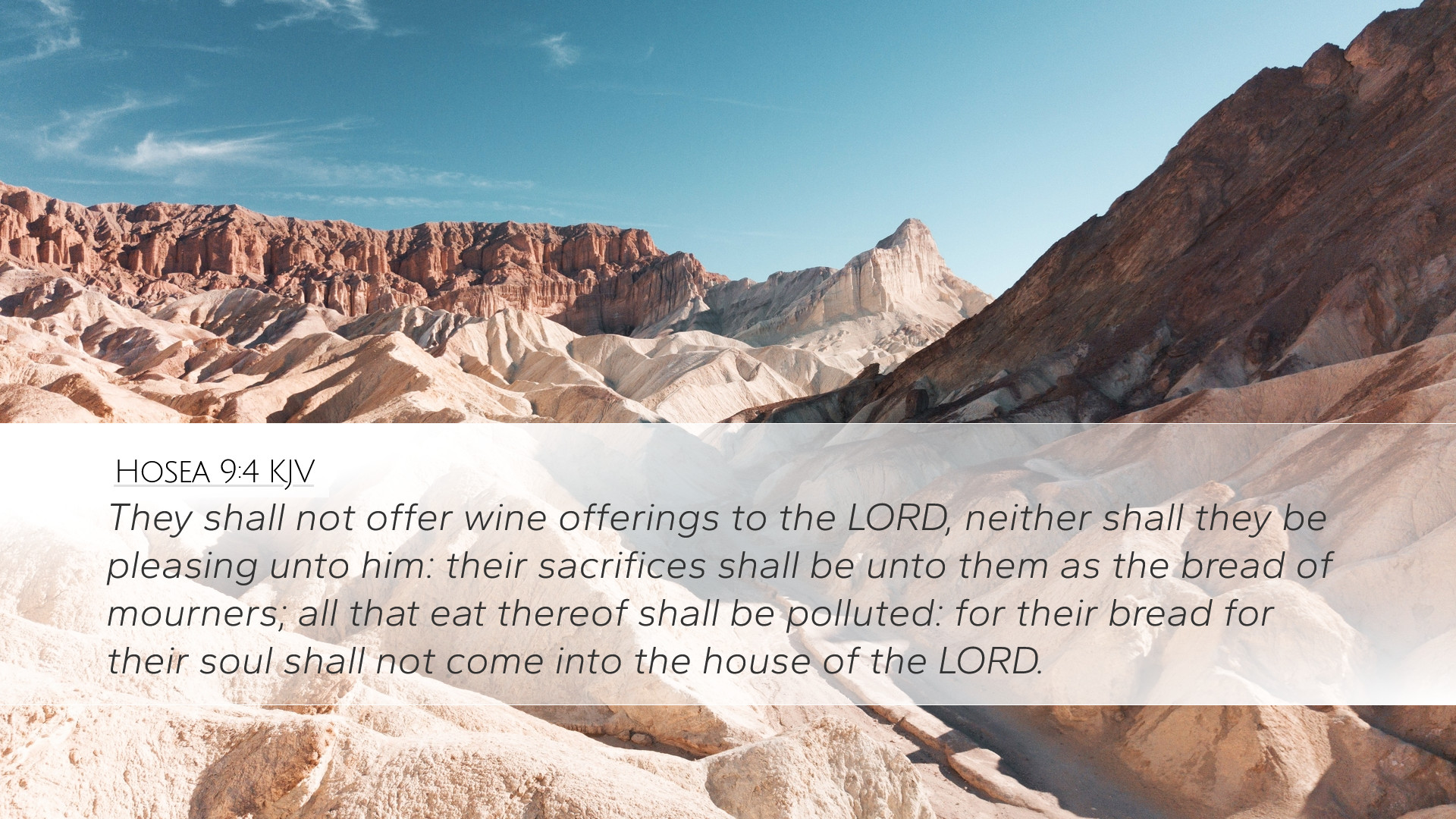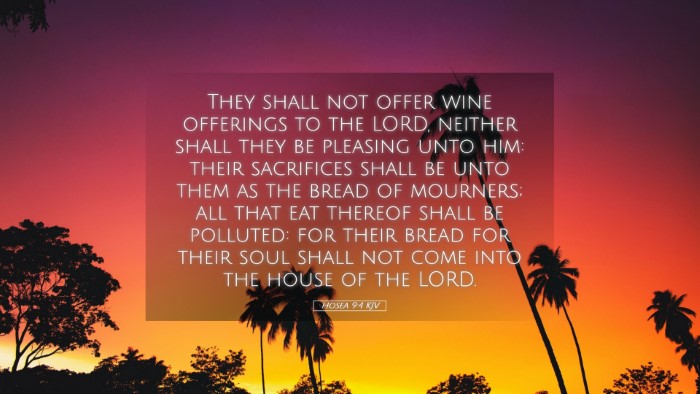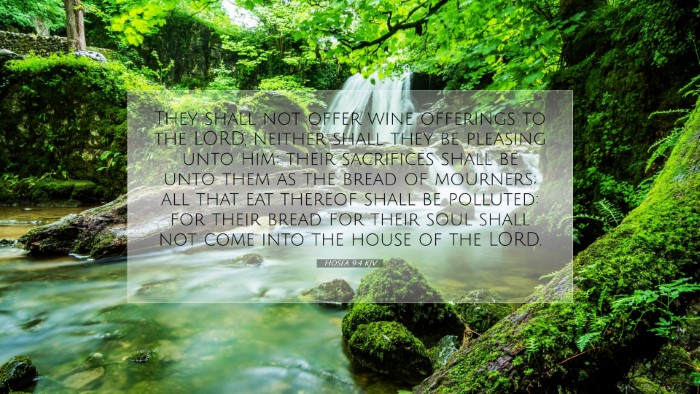Old Testament
Genesis Exodus Leviticus Numbers Deuteronomy Joshua Judges Ruth 1 Samuel 2 Samuel 1 Kings 2 Kings 1 Chronicles 2 Chronicles Ezra Nehemiah Esther Job Psalms Proverbs Ecclesiastes Song of Solomon Isaiah Jeremiah Lamentations Ezekiel Daniel Hosea Joel Amos Obadiah Jonah Micah Nahum Habakkuk Zephaniah Haggai Zechariah MalachiHosea 9:4
Hosea 9:4 KJV
They shall not offer wine offerings to the LORD, neither shall they be pleasing unto him: their sacrifices shall be unto them as the bread of mourners; all that eat thereof shall be polluted: for their bread for their soul shall not come into the house of the LORD.
Hosea 9:4 Bible Commentary
Bible Commentary on Hosea 9:4
Verse: "They shall not offer wine offerings to the LORD, neither shall they be pleasing unto him: their sacrifices shall be unto them as the bread of mourners; all that eat thereof shall be polluted: for their bread for their soul shall not come into the house of the LORD."
Introduction
This passage from the book of Hosea reveals the dire consequences of Israel's unfaithfulness to God. The verse serves as a stark reminder of the futility of ritualistic worship that is not accompanied by true devotion and righteousness. Various public domain commentaries shed light on the theological and practical implications of this verse, offering insights valuable to pastors, students, and theologians alike.
Contextual Overview
The book of Hosea details the prophet's ministry during a time of profound moral decay and spiritual apostasy in Israel. God's people had turned away from worshiping Him to the idols of their neighbors, leading to inevitable judgment. Hosea's prophetic voice calls for repentance while forewarning of judgment; this particular verse encapsulates the broader themes present in the text.
Theological Insights
-
The Nature of Offerings:
According to Matthew Henry, the offerings made by Israel had become meaningless due to their sinful state. God does not delight in sacrifices that stem from unclean hands and impure hearts. Hosea implies that their wine offerings are rejected, revealing that ritual without relationship is void.
-
The Image of Mourning:
Adam Clarke keenly interprets the phrase "bread of mourners." He emphasizes that once joyous feasts become symbolic of grief when worship lacks sincerity. Their sacrifices, instead of bringing life and joy to the people, become a source of spiritual pollution.
-
Pollution and Righteousness:
Albert Barnes notes that consuming these impure offerings would render the worshippers polluted. This speaks not only to the physicality of the food but to the spiritual contamination caused by engaging in worship without true repentance.
Practical Implications
-
The Call for True Worship:
Pastors and leaders are reminded that God desires authentic worship from His people. As we bring gifts to God, they must come from a heart that is right and a life that is aligned with His will.
-
Consequences of Apostasy:
This verse serves as a warning: when the people of God adopt practices devoid of sincere faith, they bring upon themselves the inevitability of divine disfavor. Spiritual neglect invites moral and communal decay.
-
Mourning or Celebration:
We are called to reflect on our own lives and consider whether our offerings are filled with joy or grief. Worship that pleases God is celebratory and filled with the joy of salvation, contrary to the bread of mourners described in this passage.
Conclusion
Hosea 9:4 encapsulates deep and profound truths about the nature of worship, the significance of purity in sacrifices, and the devastating effects of turning away from God. As we meditate on these lessons, let us examine our hearts and strive towards a worship that honors God in spirit and truth, free from the pollution of sin and disobedience.


